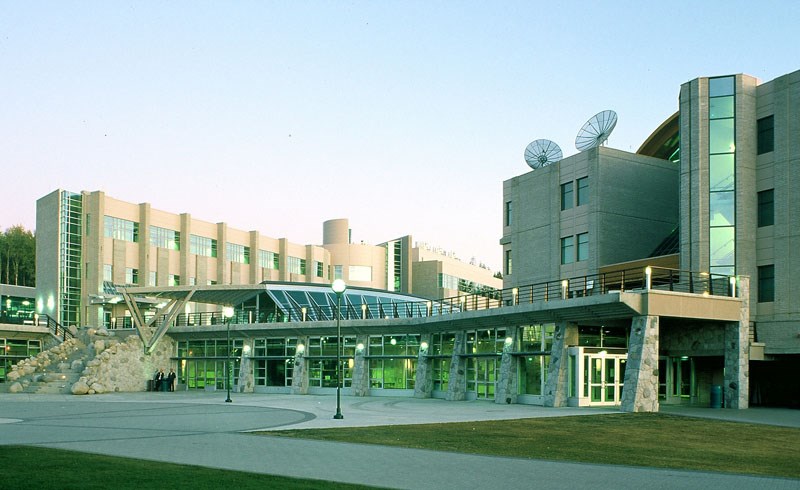A strike at UNBC is not a certainty, but picket lines on Thursday are an educated guess. According to the university's faculty association "we are very far apart" on wage issues.
The employer - university management - said the school would remain open in any event, but there were hopes that filing official 72-hour strike notice only meant a legal positioning and talks to end the dispute would carry on meaningfully.
"I don’t want to say it doesn’t have an effect, but we’ve been working on an agreement since May and the university is eager to have an agreement," said Rob van Adrichem, the university's vice-president of external relations. “It doesn't necessarily mean a full-scale strike with pickets at the entrance. That remains to be seen.”
Faculty association president Jacqueline Holler and chief negotiator Ted Binnema, both professors at UNBC, said the next meeting between the two sides was scheduled for later this week before the strike deadline, but the faculty association was armed with an 85 per cent mandate from its members to set down all tools at all UNBC facilities if the sides are still in disagreement.
When asked repeatedly about what the impasse numbers actually were, none of the parties would say. Holler partially clarified, saying it was a different amount for different professions within the faculty association, but the agreement covered several kinds of jobs so a particular figure wasn't possible.
"In our last round of negotiations in 2012-2014, we made UNBC aware of the degree to which our working conditions, including our compensation, were out of step with the norm at comparator universities," Holler said. "We pointed out then that the excellence of UNBC, and its No. 2 ranking among Canada’s 18 primarily undergraduate universities, were sustained by our faculty’s teaching and research. Yet our compensation was at the rock-bottom. When it became clear that the Employer was unwilling to address our concerns, the faculty association requested the intervention of independent arbitrator Vince Ready."
According to Holler and Binnema, Ready examined the positions of the two sides and concluded that he saw “persuasive evidence as to the UNBC faculty’s low/bottom salary standing relative to the salaries received by faculty at other representative institutions performing similar work (or arguably lesser work in the case of those comparators lacking a research profile or graduate student responsibilities).”
Furthermore, the faculty association is convinced, based on Ready's interpretation of the situation, that UNBC can afford their request to bump up local wages to be in line with similar professionals at similar institutions.
A raise is not out of the question, said van Adrichem, but UNBC negotiators can only do so much, due to provincial government rules.
“It’s a critical thing to understand that as a public university we’re within the provincial government's bargaining mandate so that has been a major factor in our ability to propose a compensation package,” van Adrichem said.
Binnema said the 30 days the two sides spent in mediation with Ready should have shown UNBC the way to work on the faculty's concerns without breaching any provincial protocols, and they have had enough time to consider the terms being proposed.
"We are long past the date at which we could have concluded an acceptable first collective agreement," he said.
Holler added that the word is already out on the streets of academe that UNBC pays poorly, thus hurting the university's chances of attracting and retaining new talent to the research lab, classroom and lecture hall.
"Today we stand at an impasse on issues of the utmost importance, most notably compensation and benefits," she said. "We have adopted a very gradualist approach since our members rejected the Employer’s proposals in September 2014. At this point, with the Canada Winter Games concluded, the Executive of the UNBC Faculty Association has called for strike and 72-hour notice has been served. If no agreement is reached by 8 a.m. on Thursday, 5 March 2015, our members will withdraw all teaching, research, and professional services from UNBC operations in Prince George, Quesnel, Terrace, Fort St John, and Vancouver. This will be a full-scale withdrawal of services, and our members will not return to work until an agreement is concluded."
The two professors said they disliked disruptions to the life and educational momentum of students, but that was the cause they were fighting for, ultimately. Besides, said Holler, no job action in the history of Canadian universities had caused the loss of a semester.
Van Adrichem said steps were being considered for how educational program delivery could still be accomplished even with a strike underway.



